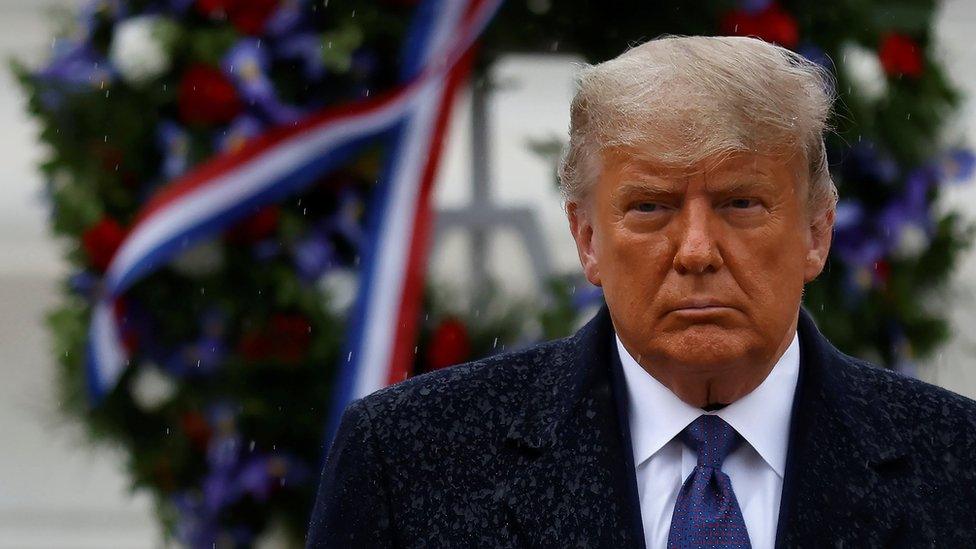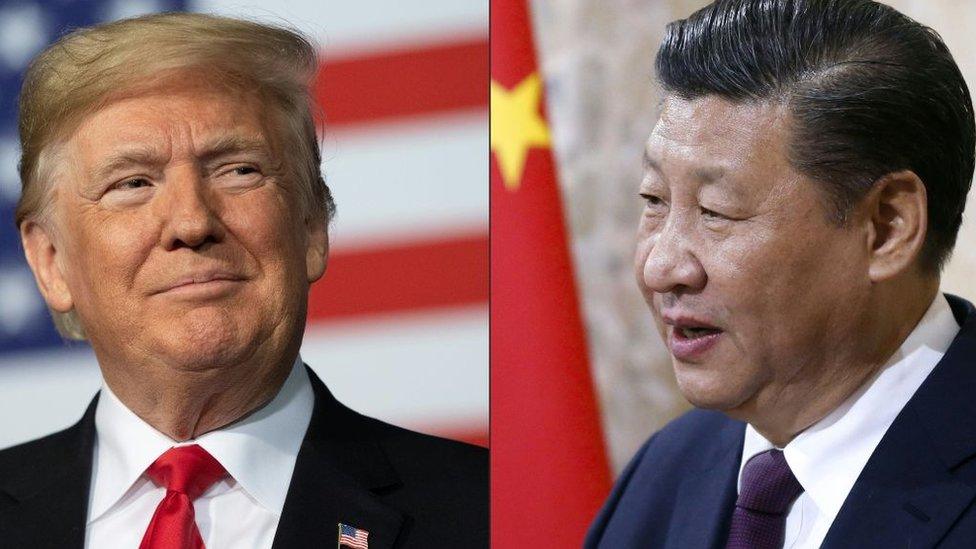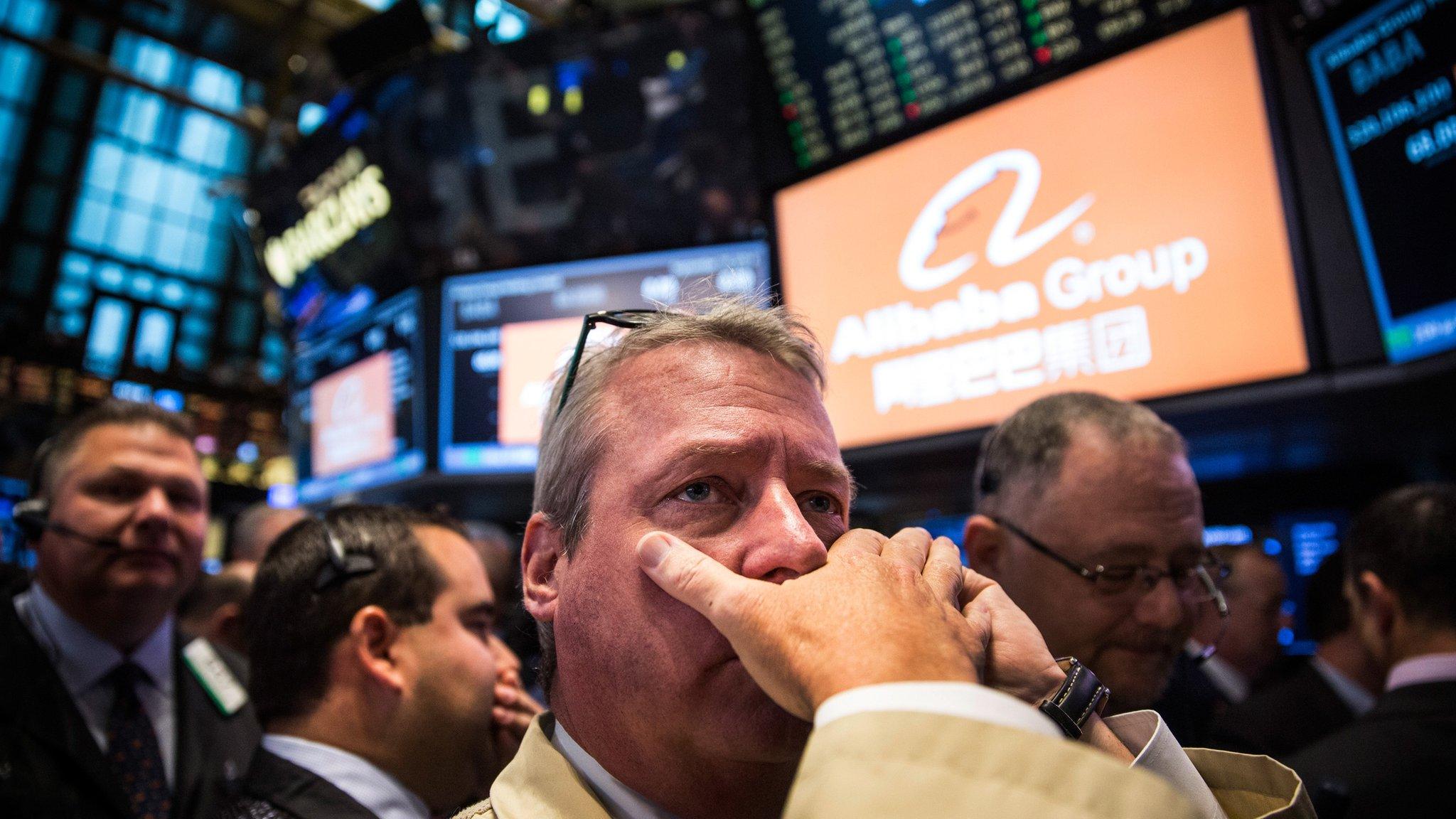US bars investments in 'Chinese military companies'
- Published

US President Donald Trump has issued an order banning American investments in Chinese firms the government determines have ties to the Chinese military.
In the order,, external Mr Trump accused China of "increasingly exploiting" US investors "to finance the development and modernisation of its military".
The ban is to go into effect in January.
It could affect some of China's biggest publicly-listed firms, including China Telecom and tech firm Hikvision.
Throughout his administration, Mr Trump has made efforts to disentangle the US from its close economic ties with China.
He has raised border taxes on billions of dollars worth of China goods and imposed sanctions on some of its tech companies.
Relations between the two superpowers have also soured over issues such as coronavirus, and China's moves in Hong Kong.
Officials said the new order had been under review for months. It applies to shares owned directly or indirectly in 31 firms identified by the US earlier this year as backed by the Chinese military, a list that includes tech firms and large state-owned construction companies among others.
US investors have a year to comply with the rules.
Mr Trump, who recently lost to challenger Joe Biden in the US presidential election, is due to leave the presidency shortly after the order goes into effect.
Mr Biden has not outlined his China strategy, but during the campaign he promised to challenge the Chinese government on similar issues as Mr Trump, including trade abuses and cyber-theft.
Mr Trump's stance on China is one of the rare areas in which he has sometimes received support from both Democrats and Republicans.
Several politicians in Congress have also proposed laws to block US investment in firms the White House designates as threats.
Earlier this year, Mr Trump ordered the pension fund for government employees to abandon a plan to invest in Chinese companies. The US has also said it is considering de-listing Chinese firms from US stock exchanges if they do not comply with US audit rules.
The efforts come as US exposure to companies listed on Chinese stock exchanges has grown.
But such investments remain a small fraction of overall US holdings. In a report, external earlier this year, researchers for financial regulators at the US Securities and Exchange Commission estimated that US mutual funds held about $43.5bn in Chinese stocks and bonds at the end of April.
A spokeswoman for the Investment Company Institute, a trade association for mutual funds and other money managers, said it was reviewing the order and had no further comment.
- Published24 July 2020

- Published27 September 2019
